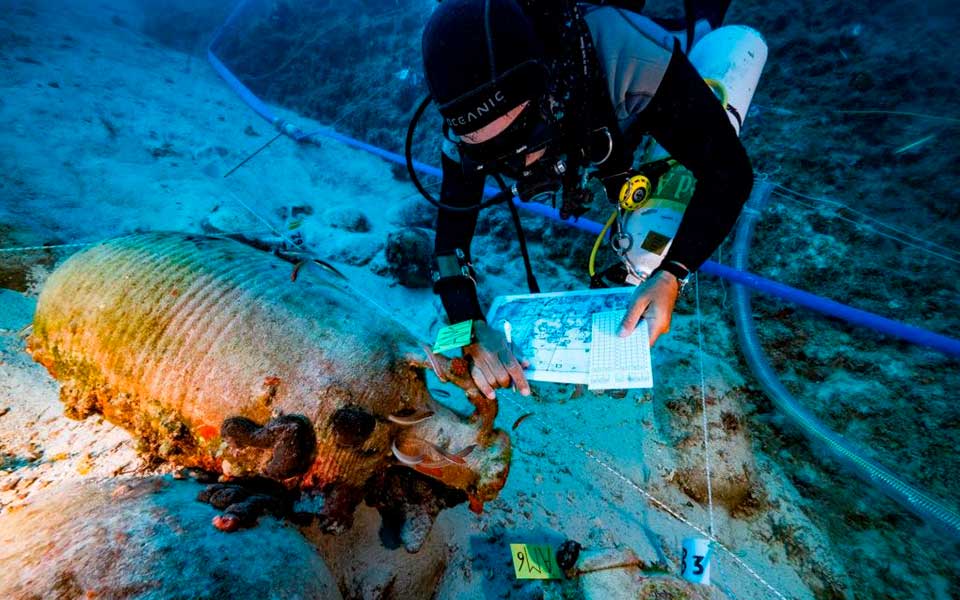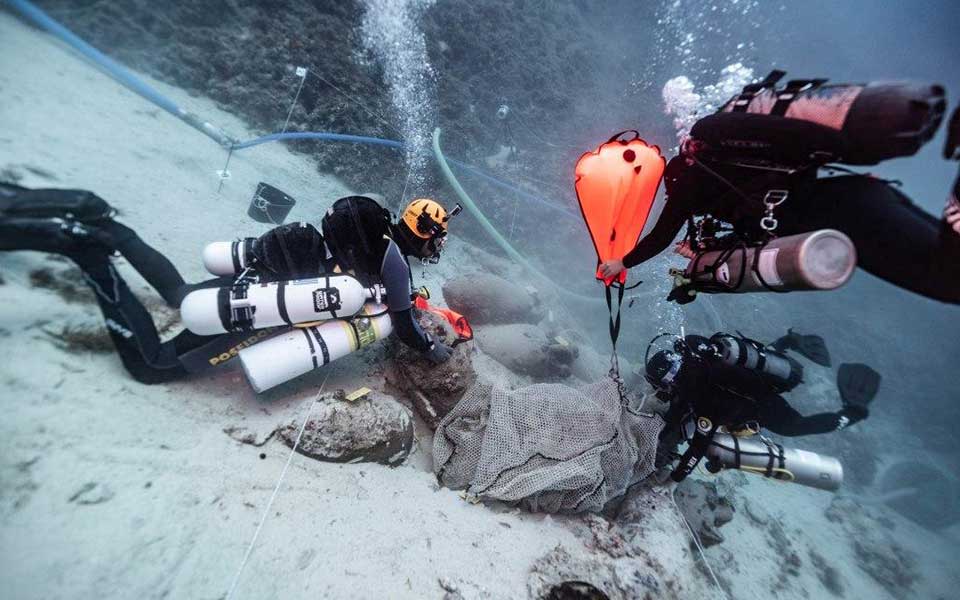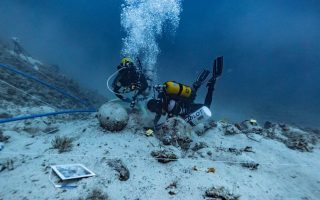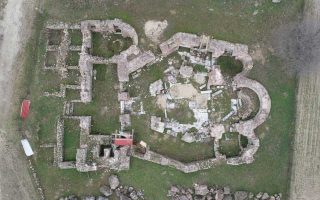Underwater survey of a Byzantine shipwreck in the Fourni archipelago

The Greek Ministry of Culture and Sports has announced the results of last year’s underwater archaeological mission to the Fourni archipelago in the northeast Aegean, including the successful survey of an early Byzantine shipwreck dating to the late 5th-early 6th century AD.
Under the direction of Dr George Koutsouflakis and the Ephorate of Underwater Antiquities, divers located the wreck near Cape Fygou on the east coast of Fourni island, lying on a steep, sandy bottom at a depth of 43-48 meters.
Comprising 13 small islands and islets situated between the larger islands of Samos, Ikaria and Patmos, in antiquity, the Fourni archipelago was an important navigational crossroads that connected the Black Sea and Aegean to Cyprus, the Levant, and Egypt. Nevertheless, the island group is notorious for its strong winds, which blow throughout the year, causing especially hazardous sailing conditions for ancient seafarers.
Over the course of six seasons of underwater archaeological survey (2015-2021), 58 shipwrecks have been discovered in an area of 44 square kilometers, the largest concentration of shipwrecks ever found in the Mediterranean.
The wrecks span from the Archaic period (800-480 BC) to the 20th century, but the majority date to the Classical Greek, Roman and Byzantine eras. Around ninety percent were found with scattered cargoes of amphoras, large ceramic storage jars used to transport liquids and semi-liquids, including wine, oil, fish sauces and honey.
The wreck studied in 2021 was selected for targeted investigation due to its largely intact and heterogenous cargo, consisting of six different types of amphoras from the Crimea and the Pontus region of the Black Sea. The ship was also carrying a load of table ceramics, originating from the area of Phocaea on the western coast of Anatolia (modern-day Turkey).

During the work, the 25-member dive team cleared sand deposits and opened a test trench to investigate the stratigraphy of the wreck. Fifteen amphoras were recovered, including a type associated with the city of Sinope on the Black Sea coast of northern Anatolia, as well as a number of the Phocaean table wares. Pieces of wood, likely part of the ship’s hull that had survived in the anoxic layers below the cargo, were also retrieved for analysis.
The recovery of the table wares was especially important, enabling the researchers to date the wreck to the late 5th and early 6th centuries AD, most likely during the reign of the Byzantine emperor Anastasius I Dicorus (491-518 AD). According to historical sources, Anastasius was renowned for his reforms and improvements to the government, economy, and bureaucracy of the empire, boosting trade and strengthening the state’s coffers. These reforms enabled the more ambitious, expansionist policies of his successors, most famously Justinian I.
Further to the test excavation and retrieval of archaeological material from the early Byzantine shipwreck, additional recording of other wrecks in the vicinity was undertaken by the dive team. In the course of their survey, the team conducted a total of 292 individual dives, amounting to around 220 working hours on the seabed.
Currently one of the most exciting projects in Mediterranean underwater archaeology, work on the Fourni shipwrecks has been carried out within the framework of the European Cross-Border Cooperation Program Interreg VA Greece – Cyprus 2014-2020, “Diving Routes in Marine Protected Areas of the Eastern Mediterranean.”
Following the successful season last year, the Ephorate of Underwater Antiquities is now drawing up plans to carry out a systematic excavation of the wreck in the near future.
This article first appeared in Greece Is (www.greece-is.com), a Kathimerini publishing initiative.





